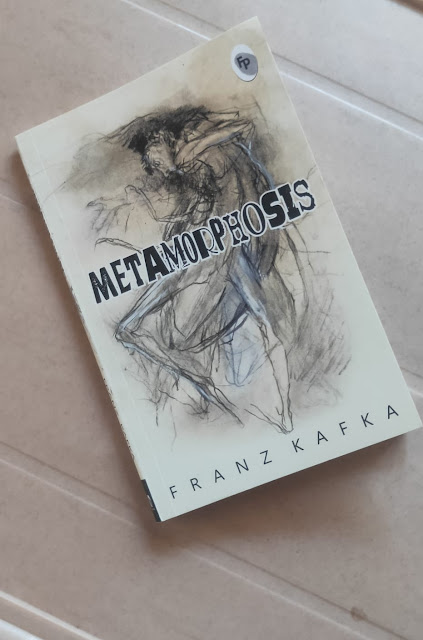Kafka starts by a startling statement: ‘One
morning, when Gregor Samsa woke from troubled dreams, he found himself transformed
in his bed int a horrible vermin.’
Now we do not know whether the subsequent
experience of Gregor is an extension of his dream or not.
He is not able to move his limbs. He is not able to communicate. But he is able to climb over the walls and
roof. He is in a miserable position that
he can no longer go for his duties and due to that his father, mother and young
sister of only 17 years are forced to go out for work, to sustain.
But, when his family finds him thus transformed,
their attitude changing towards him gradually is what the novel describes.
When he tries to come out of his room, his father
pushes him back into his room with a stick in one hand and a news paper in the other.
The efforts of Gregor to speak to his Mother or
Father are in vain.
His sister also who comes into his room takes away
the left-over after his meals, not with her bare hands, but with a rag.
His room gradually becomes a store room for all unwanted
items of the household, particularly when a portion of their house was rented
out to three persons, for purely monetary considerations.
But then, even his sister who used to be sympathetic
towards him, looked after his needs, and loved him, after his presence was objected
to by their new tenants, found him abhorrent and declares, ‘I don’t want to call
this monster my brother, all I can say is: we have to try and get rid of it’.
Her father agrees and says, ‘If he could just
understand us, then perhaps we could come to some kind of arrangement with
him. But as it is..’.
“It’s got to go” shouts his sister.
After he moved back to his room with great effort,
his sister closes the door behind him and locks the door with great
relief.
The next day, when their maid arrives, he is found
dead.
Even the disposal of ‘that thing’ is taken care of
only by their maid.
‘After that, the three of them left the flat
together, which was something they had not done for months, and took the tram
out to the open country outside the town’.
….
The pain of a person who is a part of the family,
but could not communicate is personified in the whole of the novel. It has to be read, to be understood and felt.
This need not be due to someone becoming a
vermin.
The situation could be due to any incapacitation,
whether by illness, accident, old age, etc.
The agony of dependence and yet having emotions on one hand and the limits
of endurance of the family members on the other, is existential.
This tragedy of the human, on the side of the protagonist
as well as his family members, is demeaning.
But Kafka, perhaps with a deliberate intend, named
it ‘Metamorphosis’.





No comments:
Post a Comment